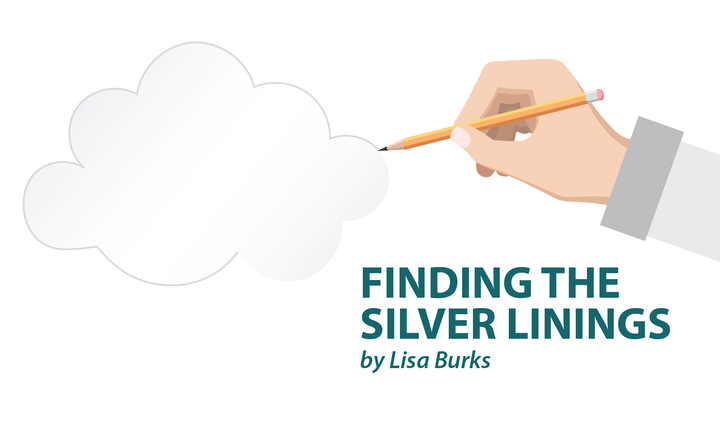Steroids are typically used for treating medical conditions that involve inflammatory responses. Examples of these are inflammatory bowel disease, asthma, eczema, arthritis, allergic responses, and others.
In addition to treating inflammatory diseases, other uses for steroids include supplementing hormones. Taking steroids, like prednisone, can either help your body feel better or it can cause problems. Or both.
What is cortisol?
Within the body is the endocrine system, which is made up of glands. These glands secrete hormones into the bloodstream for the body to function correctly. There are two important glands, known as the adrenal glands, that release a hormone called cortisol.
Cortisol is the body’s natural form of steroid that regulates metabolism by:
- Turning glucose into energy.
- Helping the immune response to fight off infections.
- Helping the body respond to stress. Cortisol is known for its involvement with the fight-or-flight response in a stressful situation.
Taking steroids, such as prednisone, can affect how the adrenal glands produce cortisol. Prednisone can cause cortisol levels to rise or be part of the reason it is not being produced.
High cortisol levels
When people are taking corticosteroids, like prednisone, side effects can occur, such as increased appetite, weight gain, moonface, and insomnia. There is a danger for more severe side effects when steroids are taken for a prolonged period, including diabetes, cataracts, and bone loss.
When someone must take high doses of steroids for a prolonged period, there is also a risk of developing a condition called Cushing’s syndrome.
It can be dangerous if the cortisol levels in your system are high. The symptoms of Cushing’s syndrome are much like those associated with prolonged steroid use, but more severe, including:
- Obesity above the waist.
- Rounded and red face, known as moonface.
- A lump between the back shoulders, called a buffalo hump.
- Weak muscles or bones, osteoporosis, bone pain, and fractures.
- Skin changes, like stretch marks, acne, and thinning of the skin.
Low cortisol levels
Oddly, taking steroids long-term can also put you at risk of adrenal insufficiency, when cortisol is no longer produced. There are two types of adrenal insufficiency diseases: primary and secondary.
Primary adrenal insufficiency is an autoimmune disease that is caused by damage to the adrenal gland. This is also known as Addison’s disease.
With secondary adrenal insufficiency, the adrenal glands stop producing the adrenocorticotropic (ACTH) and the cortisol hormones. The ACTH hormone helps with the production of cortisol. Secondary insufficiency is mainly caused by long-term exposure to higher doses of corticosteroids. In some cases, the adrenal glands can start to produce ACTH and cortisol again. If so, it usually takes 12 months, depending on how long high doses of steroids were taken.
Symptoms of both types of adrenal insufficiency may start slowly but can become quite serious if untreated. Adrenal insufficiency can cause excessive fatigue, muscle loss, unexplained fevers, weight loss, mood swings, and changes to the skin. A test for adrenal insufficiency can be done through blood work.
Too high for too long
Unfortunately, I have been on high doses of prednisone for more than 10 years to treat severe asthma and Crohn’s disease.
Because I was taking 40 mg daily for years, I developed Cushing’s syndrome. I gained a lot of weight fairly quickly, had moonface that made me barely recognizable, thinning of the skin, which led to stretch marks, and even developed cataracts and diabetes. With everything happening to my body, I became depressed. Thankfully, over the past two years, my health issues have been improving. And within the past year, I tapered down to just 5 mg daily!
Something wasn’t right
Over the past five months, I have been running fevers and was extremely fatigued, even after sleeping all night and taking naps throughout the day. I’ve been very weak and getting physically sick after mild workouts. My doctors ordered some blood work, and everything came back showing secondary adrenal insufficiency. My cortisol and ACTH levels were almost zero each!
For now, I have to increase the dose of the very medication that caused my adrenal glands to stop working: prednisone. This is to supplement the natural steroids my glands are not producing. Hopefully, my adrenal glands will wake up in the next year and I will be able to get off steroids all together! Steroids are both a blessing and a curse!
***
Note: IBD News Today is strictly a news and information website about the disease. It does not provide medical advice, diagnosis, or treatment. This content is not intended to be a substitute for professional medical advice, diagnosis, or treatment. Always seek the advice of your physician or other qualified health provider with any questions you may have regarding a medical condition. Never disregard professional medical advice or delay in seeking it because of something you have read on this website. The opinions expressed in this column are not those of IBD News Today, or its parent company, BioNews Services, and are intended to spark discussion about issues pertaining to IBD.



Great article! My daughter has primary Adrenal Insufficiency. But I advocate and fight for more education in the medical Community for both SAI AND PAI. The medical Community still does not acknowledge that steroids can cause SAI. You explained it well. I am sorry you have it, but I am also glad you are ok.
Hi Debbie!
Thank you so much for writing me! I am so sorry to hear that your daughter is living with PAI! It’s hard to live with. You are absolutely right, it’s not being announced or acknowledged that it can be directly related to steroid use! My doctors finally got the right dose going so that I’m feeling much better, thank you so much! I hope that your daughter is feeling well now! 😊
The best articulation of the condition and relationship between Cortef and body function. I am a newly diagnosed patient with secondary adrenal insufficiency and I found this very useful.
Hi Stuart!
Thank you for taking the time to read and comment! I’m sorry to hear that you are newly diagnosed as well! It’s hard! I’m glad that you found my post helpful! Do the drs know why you developed SAI?
I got PAI but not due to steroids use, auto-immune, I developed colitis after. But I do keep warning people do be careful when taking any type of steroids for a long time. I know what the disease is like and both are awful. But if you only have one, you’d rather want to keep it at one!
Thank you Lisa for the informative article. I’m new with the ADI, starting with Cortisol AM, 1.6mcg. PM 0.8
I’m taking HC 20mg 10.5 am
5mg PM. I’m not positive but I believe the ADI started from getting Cortisone injections for Chronic back pain, over a period of 10yrs. Injections at L-4-5 levels, SI Joints, Sciatic, Hip and knees. They do help controlling pain for sure.
I’ve never been told that these have or Could cause the condition so I was wondering in your research, if you’ve seen any studies concerning this type of cause